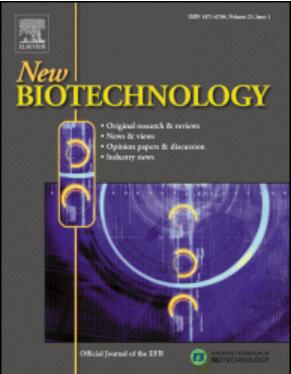MutS-mediated rapid and cost-effective error correction in in vitro DNA synthesis
IF 4.9
2区 生物学
Q1 BIOCHEMICAL RESEARCH METHODS
引用次数: 0
Abstract
The in vitro synthesis of DNA oligonucleotides and their subsequent assembly into longer target molecules represents a pivotal technique within the field of synthetic biology. However, the occurrence of side reactions and the inherent coupling efficiency of the synthesis process lead to the unavoidable introduction of errors into the resulting DNA. Consequently, there is a pressing demand for a straightforward, cost-effective, and efficient method for error correction. In this study, eleven Cbm3-Egfp-MutS fusion proteins were recombinantly expressed and purified, and their capacity to bind heteroduplex DNA was assessed. Among the MutS proteins, TaMutS and TtMutS exhibited thermal stability and effectively distinguished DNA containing mismatches. Following this, a simple, rapid, efficient, and economical error correction method was devised utilizing a homemade spin column composed of amorphous cellulose and a filter tip. The quantitative affinity of EcMutS, TaMutS, and TtMutS for all conceivable single-base errors was determined, and the efficacy of combining MutS proteins for error correction was evaluated. The error rate in synthesized DNA was reduced by a factor ranging from 2.15--8.17, with the material cost for a single reaction amounting to $0.032. The reaction volume was limited to 10 μL, and the reaction could be completed within 20 minutes.
mts介导的体外DNA合成的快速和高成本效益的错误纠正。
体外合成DNA寡核苷酸及其随后组装成更长的靶分子是合成生物学领域的一项关键技术。然而,副反应的发生和合成过程固有的偶联效率导致在所得到的DNA中不可避免地引入错误。因此,迫切需要一种简单、经济、有效的纠错方法。在这项研究中,重组表达和纯化了11个cmm3 - egfp - muts融合蛋白,并评估了它们结合异双工DNA的能力。在MutS蛋白中,tamut和TtMutS表现出热稳定性,并能有效区分含有错配的DNA。在此基础上,设计了一种简单、快速、高效、经济的纠错方法,利用自制的由无定形纤维素和过滤头组成的自旋柱。确定了EcMutS、tamut和TtMutS对所有可能的单碱基错误的定量亲和力,并评估了结合MutS蛋白进行错误校正的效果。合成DNA的错误率降低了2.15- 8.17,单次反应的材料成本为0.032美元。反应体积限制在10μL,反应时间为20min。
本文章由计算机程序翻译,如有差异,请以英文原文为准。
求助全文
约1分钟内获得全文
求助全文
来源期刊

New biotechnology
生物-生化研究方法
CiteScore
11.40
自引率
1.90%
发文量
77
审稿时长
1 months
期刊介绍:
New Biotechnology is the official journal of the European Federation of Biotechnology (EFB) and is published bimonthly. It covers both the science of biotechnology and its surrounding political, business and financial milieu. The journal publishes peer-reviewed basic research papers, authoritative reviews, feature articles and opinions in all areas of biotechnology. It reflects the full diversity of current biotechnology science, particularly those advances in research and practice that open opportunities for exploitation of knowledge, commercially or otherwise, together with news, discussion and comment on broader issues of general interest and concern. The outlook is fully international.
The scope of the journal includes the research, industrial and commercial aspects of biotechnology, in areas such as: Healthcare and Pharmaceuticals; Food and Agriculture; Biofuels; Genetic Engineering and Molecular Biology; Genomics and Synthetic Biology; Nanotechnology; Environment and Biodiversity; Biocatalysis; Bioremediation; Process engineering.
 求助内容:
求助内容: 应助结果提醒方式:
应助结果提醒方式:


